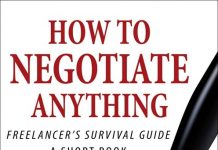 The Toronto Star has an article up this morning on high eBook prices. What is unusual about this article is that, unlike many articles on this subject, it gives cold, hard numbers.
The Toronto Star has an article up this morning on high eBook prices. What is unusual about this article is that, unlike many articles on this subject, it gives cold, hard numbers.
The library system pays $135 for a Hachette eBook. They pay $85 for a Random Penguin. And all of the eBook purchases come with restrictions which make them repurchase the book after 26 usages (HarperCollins) or one year (everyone else).
Out city librarian, the fabulously-named Vickery Bowles, calls these prices ‘unsustainable.’ And I have to agree. The library is funded by tax dollars. That seems like an unfair demographic to fleece for the highest possible price!
Bowles further adds that she understands libraries must pay a ‘premium.’ But the current premium is too high. From the article:
Bowles said the demand for ebooks is growing faster than the library’s ability to provide them, causing wait times longer than four months as six people wait for a single book.
“For print books … once that increases past the six, we purchase more copies,” she said. “But we don’t do that for ebooks because we can’t afford to.”
There is no easy solution here. I understand the publisher’s problem, namely that when a print book wears out, a new copy must be purchased, and since eBooks do not wear out, this must be accounted for in the price. I just worry that they are going to price themselves completely out of the market, the same way they are with the consumer eBook market. There are so many readers, myself included, who get more of our books from non-Big 5 sources—and I don’t just mean the ‘indie slushpile’ but also non-‘big’ publishers like Baen and No Starch Press. Penguin Random Hachette is truly not the only game in town, and they should understand that they have legitimate competition.

































They’re right, paper copies do wear out and libraries do have to replace them. The problem is that they set that ebook replacement at 26.
My library has paper copies of best seller that are decades old, and have been checked out nearly 200 times. That makes their 26 circ limit look even worse.
“I just worry that they are going to price themselves completely out of the market, the same way they are with the consumer eBook market.”
This is quite disingenuous as the big publishers seem to be doing well even with their high prices and they simply may have decided that if they stay in the library system with ebooks, they ask for this and they get out if the library is not willing to meet their price; either way I wouldn’t particularly be worried about them and using those terms imply to me an agenda (those publishers, ha they do not know what;s good for them but I know…)
As for answers, Canada is a fairly socialist state so if reading the latest Patterson or Nora Roberts is considered a public good, the state could intervene; or maybe the library could impose a charge on popular ebooks noting rightly that at even say 2-3$ per borrow of such, it is cheaper than buying them and you can always borrow the print which is free.
The publishers make their own decisions and we make our own, so it’s perfectly appropriate to say “I am not – or very rarely – buying an ebook over x dollars”, but disguising this in “worry about publishers’ terms is quite annoying and I expected better here